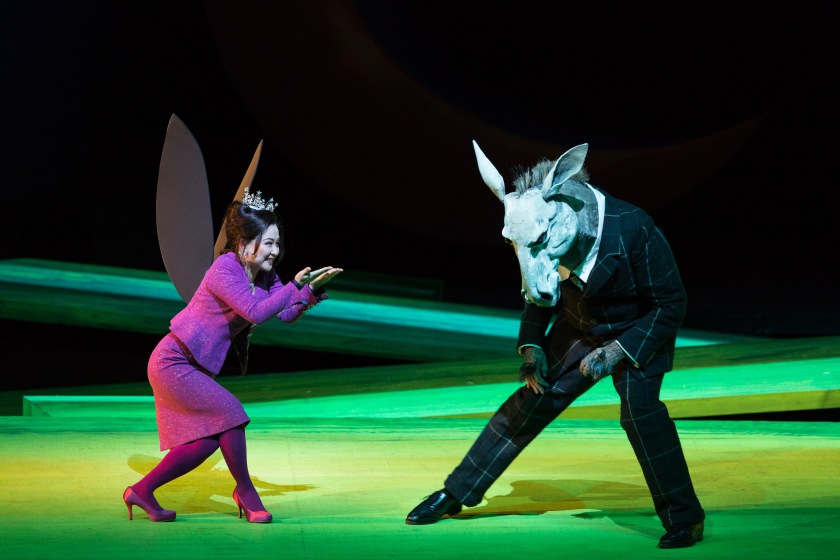If ever there was a death foretold, it was Richard Harrow’s. The most charismatic character on “Boardwalk Empire” met his end last Sunday, an event foreshadowed from the start of this season, but in reality intimated from his very beginning.
Our first view of him—that grotesquely masked World War I veteran with the destroyed face—was startling. His appearance, complemented by that gravelly voice, made you snap to attention when he spoke. And his first darkly comic exchange with Jimmy Darmody at the Veterans Hospital was singular indeed: “I put a bullet in [the German sniper’s] face…one inch below his eye.” “Well….fuck him,” was in sharp contrast to Richard’s vulnerability. We saw a well-read, articulate man, but one no longer believing the myths he grew up with. A character who by the end of the first episode in which he appeared put his sniper skills to Jimmy’s use by shooting a rival thug to death by—yes— putting a bullet through his face one inch below his eye. Make no mistake about it: whatever Richard Harrow became on this show (via Jack Huston’s artistry), he could be one cold blooded killer. Go back to Season 1 and watch what he did to the D’Alessio brothers, joining Jimmy in his worst excesses.
 But we always knew there was a great deal more to the man than that coldly efficient enforcer, not to mention our own fascination with the mask. While we never had a flashback to Richard’s life before the war, we learned about him through his interactions with others. His posing for Angela Darmody and her kindness to him was a reawakening, though he despaired of achieving his dream. In one of the most poignant scenes in “Boardwalk Empire” we saw Richard examining his scrapbook of cut-out ads depicting the type of happy family he longed for (as well as a photograph of him as a dashing soldier, impossibly handsome before his disfigurement, juxtaposed with Angela’s sketch of him with his mask off, in which she saw another form of beauty entirely). When he went off to the Pinelands to kill himself, only to realize that he still had a life, we welcomed his return to the living.
But we always knew there was a great deal more to the man than that coldly efficient enforcer, not to mention our own fascination with the mask. While we never had a flashback to Richard’s life before the war, we learned about him through his interactions with others. His posing for Angela Darmody and her kindness to him was a reawakening, though he despaired of achieving his dream. In one of the most poignant scenes in “Boardwalk Empire” we saw Richard examining his scrapbook of cut-out ads depicting the type of happy family he longed for (as well as a photograph of him as a dashing soldier, impossibly handsome before his disfigurement, juxtaposed with Angela’s sketch of him with his mask off, in which she saw another form of beauty entirely). When he went off to the Pinelands to kill himself, only to realize that he still had a life, we welcomed his return to the living.
However, the dark side remained. His blasting away Manny Horvitz on New Year’s Eve to avenge Angela’s murder closed one door, but his subservience to Gillian Darmody in order to keep watch over Tommy came at some cost. It must have been hell listening to her disparage Angela while pretending to be Tommy’s mother, and I still wonder if he had the slightest inkling of Gillian and Jimmy’s past. Most likely not, otherwise he would have killed her before he even got to Gyp Rosetti’s men.
But then there was Julia Sagorsky (beautifully played by Wrenn Schmidt). A woman who, like Angela, was able to see behind the mask. It was wonderful to watch him falling in love, and their dance at the American Legion Hall was pure pleasure (the final dip was icing on the cake). She pushed past his hesitancy (“Let’s give them something to remember” as she grabbed him for their first kiss before that surprised group of veterans), and ultimately proposed to him. His reaction—a blend of astonishment, love and shyness—was delightful. She knew what he had done to free Tommy from Gillian’s grasp but still wanted him. Julia was his match, but you had to sense there would never be a happy life ahead for them.
Richard was a changed man after that blood bath at the Artemis Club. The beginning of Season 4 saw him bereft of his willingness to kill, as he not only reneged on a contract hit; he needed sister Emma’s intervention when the man he stiffed came after him. Despite his desire to square accounts in Atlantic City and secure a future with Julia and Tommy, I dreaded what would come next for him. I knew immediately that his approach to Nucky for the information that would send Gillian to jail would come with a quid pro quo that would doom him.
And so it did. The Richard Harrow we came to know could not have lived with himself after his accidental killing of Maybelle White. Not only because he held Chalky in high regard, but because he ended the life of another man’s innocent child, something beyond his endurance. Richard had already made his amends and completed what he had set out to do: ensuring that Jimmy would finally rest in peace, Gillian would pay the price, Tommy would have the upbringing his mother would have wanted and Julia would have a husband who loved her. So it was fitting that he died at dawn, mask off, facing the sunrise and dreaming of a reunion with Julia at his true home, far away from Atlantic City.
Richard Harrow deserved no less.


